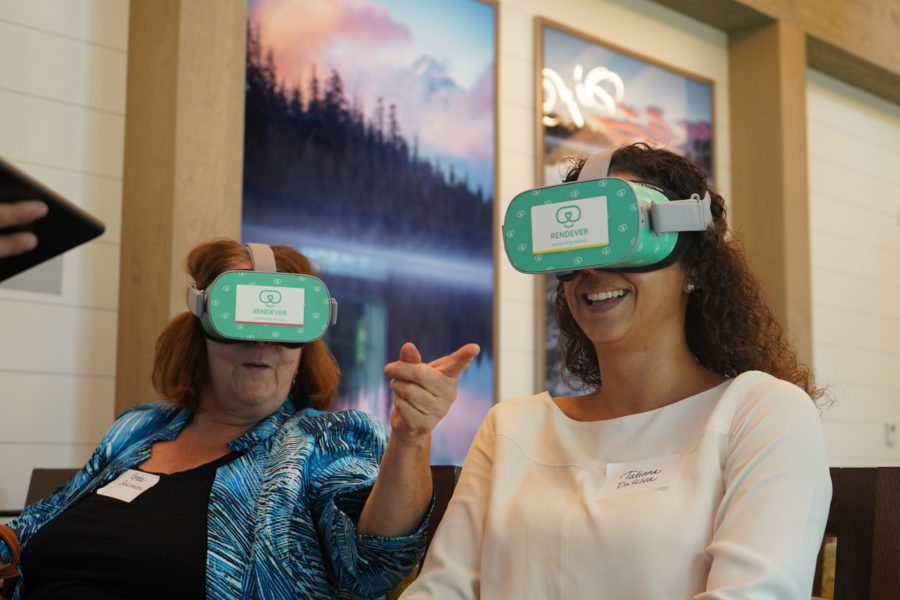
August 17, 2021 – Rendever, a virtual reality (VR) platform built to help seniors overcome social isolation through shared experiences, has today announced that it has been awarded a USD $2 million Phase II Grant from the National Institute on Aging (NIA), a division of the National Institutes of Health (NIH).
The company stated that the grant will help fund a registered multi-site clinical trial, in conjunction with the University of California Santa Barbara, to further Rendever’s continued research on the effects of VR on seniors. The research evaluates the impact of VR-based virtual family engagement for seniors and the differences in effect across various levels of cognitive impairment (MCI, mild to moderate AD/ADRD).
The Phase II Grant builds on Rendever’s previously awarded Small Business Technology Transfer (STTR) Phase I Grant to measure the impact of the company’s engagement platform. According to Rendever, the initial pilot data confirmed the positive impact that virtual family engagement has on both residents and their family members living at a distance. Residents experienced decreased negative emotions and feelings of isolation, increased positive emotions and engagement with their family members, and overall improved quality of life. Family members reported similar mental health benefits along with significant decreases in caregiver guilt after using Rendever’s VR platform.
“We see the first-hand effects of our virtual reality platform every day through our community partners. We’re trailblazing toward a future in which communities thrive beyond the four walls of the physical building. This clinical trial is truly the first of its kind, and will help us continue to push the boundaries of what we think is possible through VR,” said Kyle Rand, Cofounder and CEO of Rendever. “The future of the industry will be enabled through technology that not only builds thriving communities, but also maintains the important social connections that exist before a resident moves in. We are incredibly grateful for the hard work and enthusiasm that is going into this study, and are eager to officially launch Phase II.”
Rendever stated that technology-enabled family engagement has implications for the future of the senior care industry, and that its Phase I results showed that both residents and family members reported feeling significantly more satisfied with their family relationship and more emotionally close with their loved ones following the series of VR sessions.
“With the Phase II Grant from the NIA, we’re expanding on the data previously collected,” said Tamara Afifi, Chair of the Department of Communication at the University of California Santa Barbara and one of the principal investigators on the project. “The team will be collecting data from more senior living communities in an experimental, longitudinal design to assess the long-term impact on families. This randomized clinical trial will also enable us to provide a rigorous scientific test of virtual reality’s impact over standard modes of communicating (for example, video chat).”
The data collection is expected to be conducted through the end of 2022 and the study will include approximately 400 participants in 12 senior living communities in the greater Boston area and central California. For more information on Rendever and its VR engagement platform for seniors, visit the company’s website.
Image credit: Rendever
About the author
Sam is the Founder and Managing Editor of Auganix. With a background in research and report writing, he has been covering XR industry news for the past seven years.
